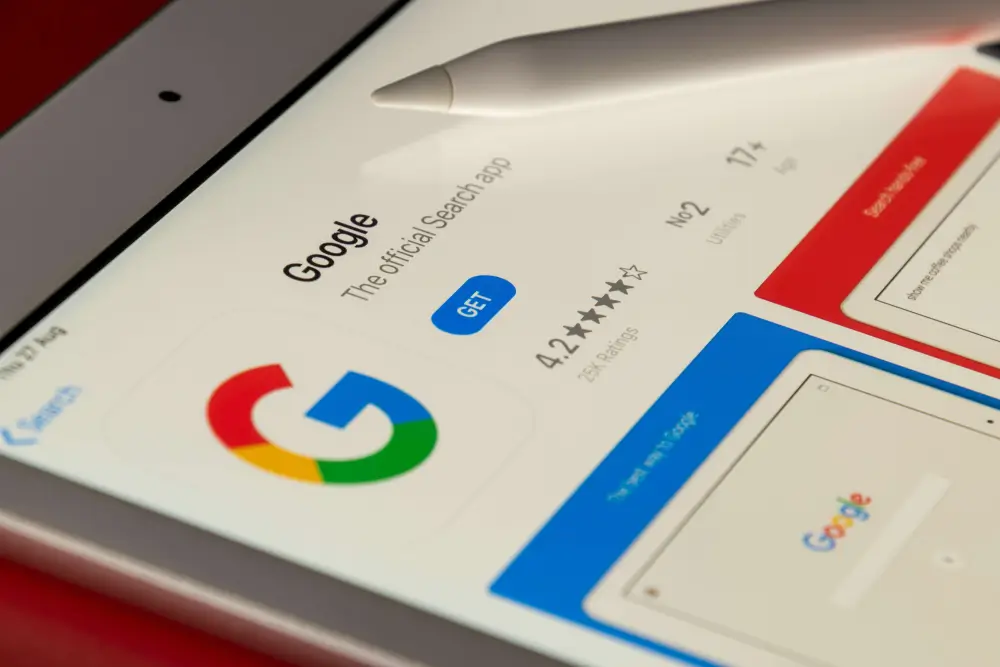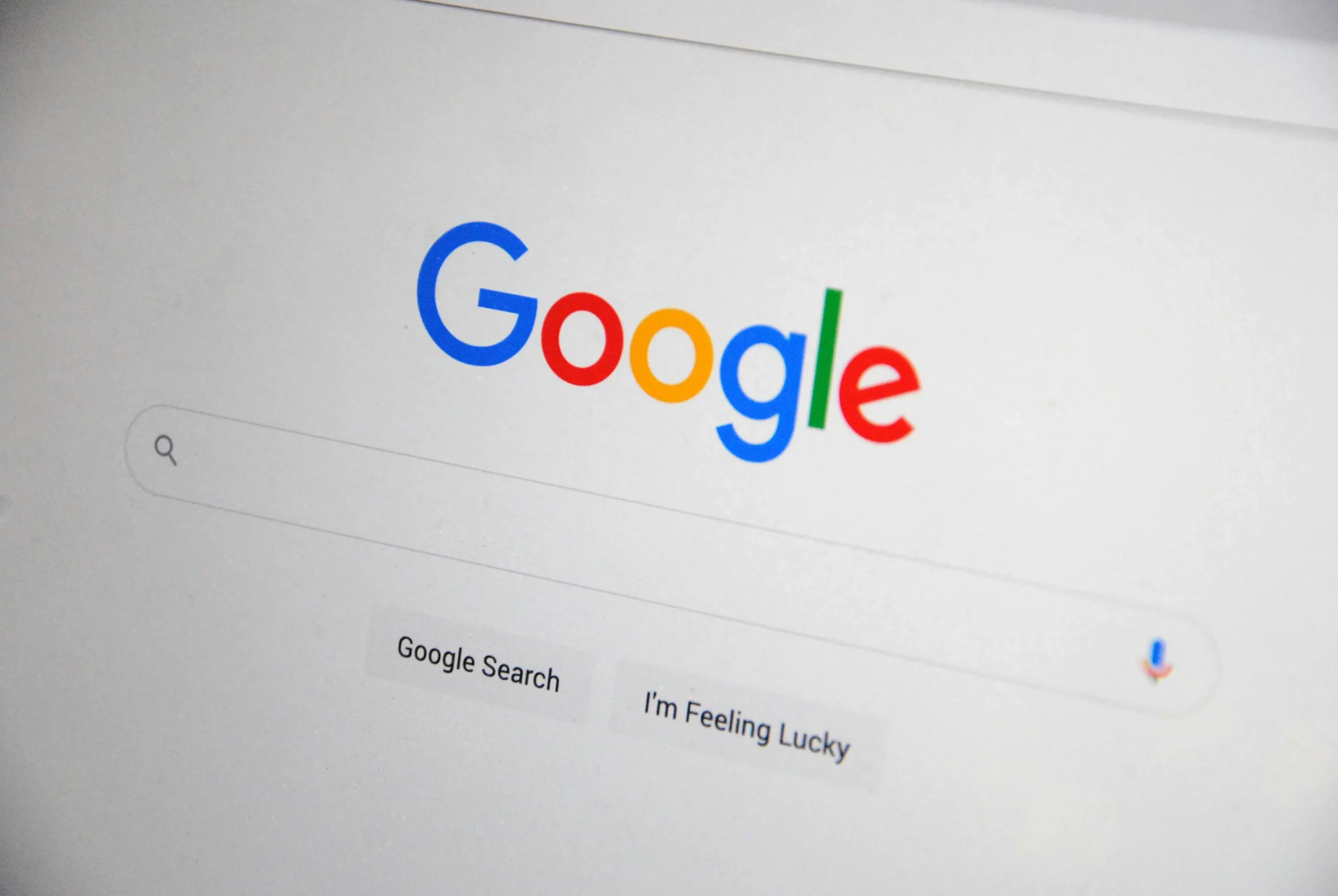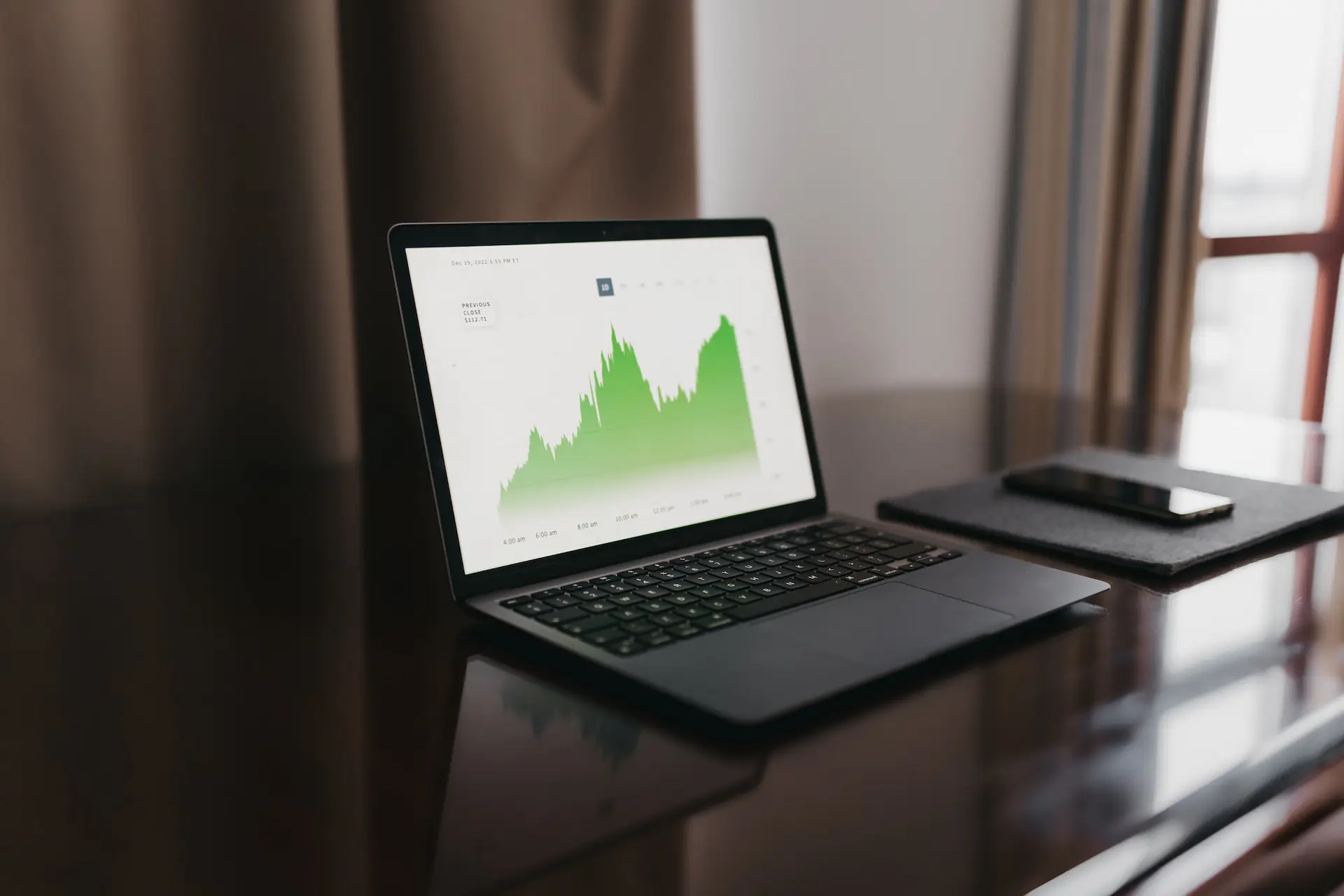My site not ranking well – Competition
If you have a website, you probably want it to rank well on Google and other search engines. But ranking on the first page of Google is not easy, especially if you are in a competitive industry or market. In this blog post, we will explore some of the reasons why your website might not be ranking on Google and what you can do to improve your situation.
One of the main factors that affect your website’s ranking is competition. Some industries are more crowded than others, and larger competitors with substantial marketing budgets might dominate search results. Consider focusing on a specific niche or local audience to improve your chances of ranking higher. For example, if you sell shoes online, you might have a hard time competing with big brands like Nike or Adidas. But if you specialize in vegan shoes or shoes for people with foot problems, you might have less competition and more demand.
Another factor that influences your website’s ranking is relevance. Google wants to show the most relevant results to its users, so it evaluates your website’s content and keywords to determine how well it matches the user’s query. To rank higher on Google, you need to optimize your website for the keywords that your target audience is searching for. You can use tools like Google Keyword Planner or Moz Keyword Explorer to find out what keywords are popular and relevant in your industry or niche. Then, you need to create high-quality content that answers the user’s questions and provides value. You also need to use the keywords strategically in your title tags, meta descriptions, headings, and body text.
A third factor that affects your website’s ranking is authority. Google wants to show the most trustworthy and credible results to its users, so it evaluates your website’s reputation and popularity to determine how authoritative it is. To rank higher on Google, you need to build your website’s authority by getting links from other reputable websites in your industry or niche. Links are like votes of confidence that tell Google that your website is worth ranking. You can get links by creating valuable content that other websites want to share, by guest posting on other blogs or websites, by participating in online communities or forums, or by reaching out to influencers or journalists.
These are some of the reasons why your website might not be ranking on Google and some of the strategies you can use to improve your ranking. Ranking on Google is not a one-time thing but a continuous process that requires constant monitoring and improvement. By following these tips, you can increase your chances of getting more traffic and conversions from organic searches.

Indexing Issues
One of the most common questions that new website owners ask is why their site is not showing up on Google. After all, you have spent a lot of time and effort creating your website, and you want people to find it online. But how does Google decide which websites to rank and which ones to ignore?
The answer is that Google uses a complex algorithm that evaluates hundreds of factors to determine the relevance and quality of a website for a given search query. However, before Google can even consider your website for ranking, it needs to know that it exists. This is where indexing comes in.
Indexing is the process of adding your website to Google’s database so that it can be retrieved when someone searches for a topic related to your site. Google uses automated programs called crawlers or spiders to scan the web and discover new and updated pages. However, not all pages are indexed by Google, and there are some reasons why your website might not be indexed yet.
One of the most common indexing issues is that your website is not crawlable. This means that Google’s crawlers cannot access your site or some of its pages due to technical errors or restrictions. For example, your site might have a robots.txt file that blocks Google from crawling certain pages, or your site might have broken links or redirects that prevent Google from reaching some of your content.
To fix this issue, you need to make sure that your site is crawlable and that you are not blocking Google from any important pages. You can use tools like Google Search Console or Screaming Frog to check your site’s crawlability and identify any errors or issues that might be affecting your indexing. You can also use Google Search Console to submit a sitemap, which is a file that lists all the pages on your site and helps Google understand your site’s structure and content.
Another way to speed up the indexing process is to submit your site to Google Search Console for manual indexing. This is a feature that allows you to request Google to crawl and index a specific URL on your site. You can do this by going to URL Inspection in Google Search Console, entering the URL of the page you want to index, and clicking on Request Indexing. This will tell Google to prioritize crawling and indexing that page, but it does not guarantee that it will be indexed or ranked.
Keep in mind that submitting your site to Google Search Console for indexing does not mean that your site will automatically rank well on Google. Indexing is just the first step of ranking, and you still need to optimize your site for SEO and provide valuable and relevant content for your target audience. However, by ensuring that your site is indexed by Google, you are increasing your chances of being found online and attracting more organic traffic to your website.
Keyword Choices
If you have a website, you probably want it to rank well on Google and other search engines. But how do you achieve that? One of the most important factors is your keyword selection. Keywords are the words and phrases that people use to search for your website. They are also the words and phrases that Google uses to understand what your website is about and how relevant it is to the user’s query.
However, choosing the right keywords is not as simple as it sounds. You need to consider several aspects, such as:
- How popular are the keywords? You want to target keywords that have a decent amount of search volume but not too much competition.
- How relevant are the keywords? You want to target keywords that match the intent and expectations of your audience and that reflect the content and purpose of your website.
- How natural are the keywords? You want to use keywords that sound natural and conversational and that fit well with the context and flow of your content.
Poor keyword selection can hinder your rankings in several ways. For example, if you choose keywords that are too broad or generic, you will face a lot of competition from other websites that offer similar or better content. If you choose keywords that are too specific or obscure, you will limit your reach and miss out on potential traffic. If you choose keywords that are not relevant or accurate, you will attract the wrong kind of visitors who will bounce off your website quickly.
To optimize your content for relevant keywords, you need to do some research and analysis. You can use tools like Google Keyword Planner, Google Trends, or Moz Keyword Explorer to find out what keywords your target audience is searching for, how popular they are, and how difficult they are to rank for. You can also look at your competitors’ websites and see what keywords they are using and how they are performing.
Once you have a list of potential keywords, you need to use them strategically in your content. However, avoid overemphasizing keyword usage or stuffing them unnaturally. This can harm your rankings and user experience, as Google can detect and penalize such practices. Instead, aim for natural, high-quality content that provides value and answers the user’s questions. Use your keywords in important places like your title, headings, introduction, conclusion, and meta tags, but also vary them with synonyms, related terms, and long-tail variations.
By following these tips, you can improve your keyword selection and optimize your content for better rankings on Google. Remember that keyword optimization is not a one-time thing but an ongoing process that requires constant monitoring and updating. Keep track of your performance and make adjustments as needed. With time and effort, you will see positive results and grow your organic traffic.
Content Depth
If you have a website, you probably want it to rank well on Google and other search engines. But ranking is not something that happens overnight or by chance. It requires a lot of work and strategy to optimize your site for the best possible results.
One of the most important factors that affect your ranking is the quality and depth of your content. Content is the main way that search engines understand what your site is about and how relevant it is to the user’s query. Content also helps to build trust and authority with your audience, which can lead to more engagement and conversions.
But what does it mean to have quality and depth in your content? How do you create content that satisfies both the search engines and the users? In this blog post, we will explain why content depth matters for ranking and how you can improve your content depth to boost your SEO performance.
Click-Through Rates (CTR)
If you have a website, you probably want it to rank well on Google and get more organic traffic. But what if your website is not showing up on the first page of the search results, or even worse, not at all? This can be frustrating and discouraging, especially if you have invested a lot of time and money into creating your website.
One of the possible reasons why your website is not ranking on Google is that you have a low click-through rate (CTR) from the search results. CTR is the percentage of people who click on your website link after seeing it on the search results page. It is an important factor that Google uses to measure the relevance and quality of your content. If your CTR is low, it means that people are not interested in clicking on your website, and Google may assume that your content is not relevant or useful for the search query.
So, how can you improve your CTR and boost your website ranking on Google? One of the most effective ways is to optimize your meta titles and descriptions. Meta titles and descriptions are the snippets of text that appear below your website link on the search results page. They are like the headlines and summaries of your content, and they can influence whether people click on your website or not.
Meta titles and descriptions should be clear, concise, and compelling. They should include your main keywords and a value proposition that tells the user what they can expect from your content and why they should click on it. They should also match the intent and tone of the search query and avoid misleading or spammy language. Here are some examples of good and bad meta titles and descriptions for the same website:
Bad: Why is my website not ranking on Google? | Learn SEO tips
Description: Learn SEO tips from our experts and rank your website on Google fast. Click here now!
Good: How to Fix Your Website Ranking on Google in 5 Steps | SEO Guide
Description: Is your website not ranking on Google? Don’t worry; we have a solution for you. Follow our simple SEO guide and improve your website ranking in 5 easy steps.
As you can see, the good meta title and description are more specific, relevant, and enticing than the bad ones. They also use numbers, keywords, and a call to action to attract more clicks.
By optimizing your meta titles and descriptions, you can increase your CTR from the search results and signal to Google that your content is valuable and worthy of ranking higher. This can help you improve your website visibility and traffic and ultimately achieve your online goals.
Penalties
If you have a website, you probably want it to rank well on Google and other search engines. But sometimes, no matter how hard you try, your site just doesn’t show up on the first page of results. Why is that? And what can you do to fix it?
One possible reason why your website is not ranking is that you have been hit by a Google penalty. A penalty is a negative action that Google takes against your site when it detects that you have violated its quality guidelines. Penalties can be either algorithmic or manual, and they can affect your site’s visibility, traffic, and revenue.
Algorithmic penalties are applied automatically by Google’s algorithms when they detect that your site is engaging in spammy or manipulative practices, such as keyword stuffing, cloaking, duplicate content, thin content, unnatural links, or user-generated spam. Algorithmic penalties can be hard to diagnose, as Google does not notify you when they happen. You may only notice a sudden drop in your rankings or traffic, and you may not know which algorithm update caused it.
Manual penalties are applied manually by Google’s human reviewers when they find that your site is violating the webmaster guidelines. Manual penalties are more severe than algorithmic ones, as they can result in partial or complete removal of your site from Google’s index. Manual penalties are easier to identify, as Google will notify you via the Search Console if your site has been penalized. You will also see a message explaining the reason for the penalty and the steps you need to take to recover from it.
YouTube and Local Optimization
If you have a website, you probably want it to rank well on Google and get more traffic. But what if your website is not showing up on the first page of the search results? What can you do to improve your ranking and visibility?
One of the things you can do is to optimize your website for YouTube and local search. YouTube is the second largest search engine in the world, and it can drive a lot of traffic to your website if you create and upload relevant videos. Local search is also important, especially if you have a physical location or serve a specific area. People who search for local businesses or services are more likely to visit your website or store if you show up on the map and have positive reviews.
How can you optimize your website for YouTube and local search? Here are some tips:
- For YouTube, create videos that are informative, engaging, and related to your website topic. Use keywords in your video title, description, and tags that match what people are searching for. Include a link to your website in the video description and on the end screen. Encourage viewers to like, comment, share, and subscribe to your channel.
- For local search, claim and verify your Google My Business listing and fill out all the relevant information. Add photos, videos, posts, and reviews to your listing. Use keywords that describe your business and location in your website title, meta description, headings, and content. Add schema markup to your website to help Google understand your business information. Get citations from other local directories and websites.
Try these tips and see the results for yourself!



